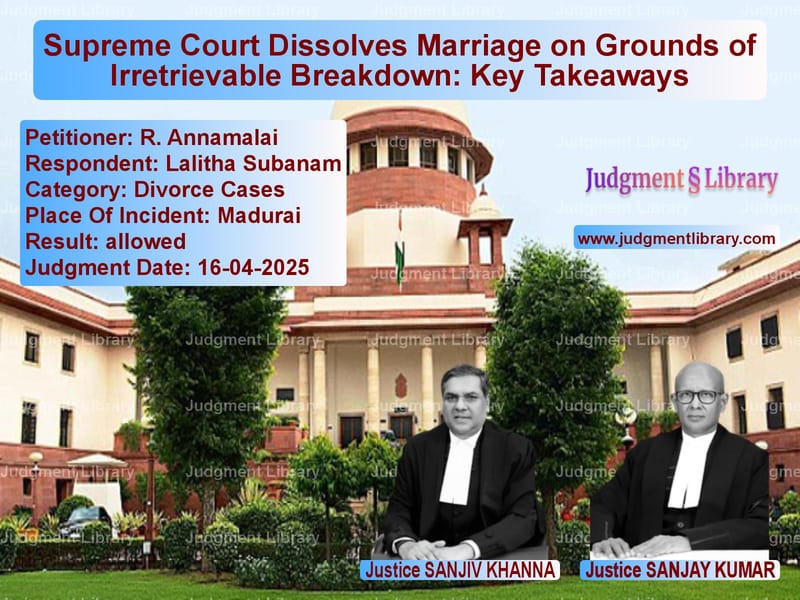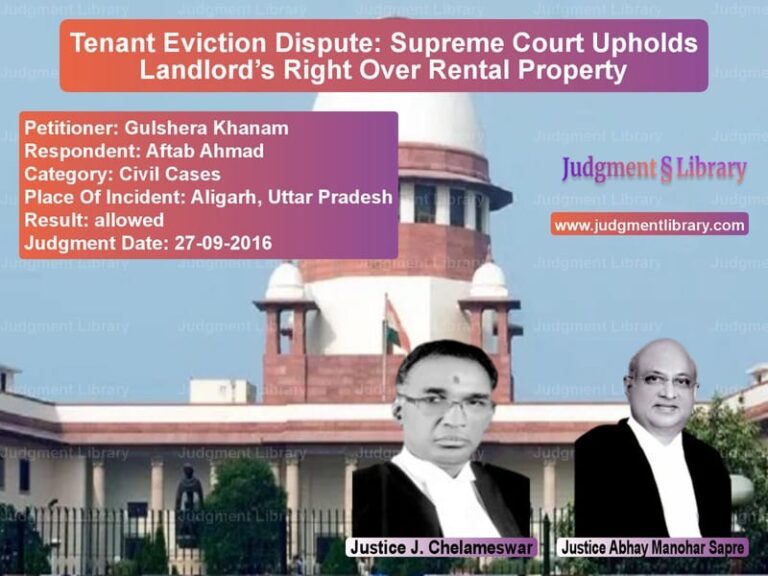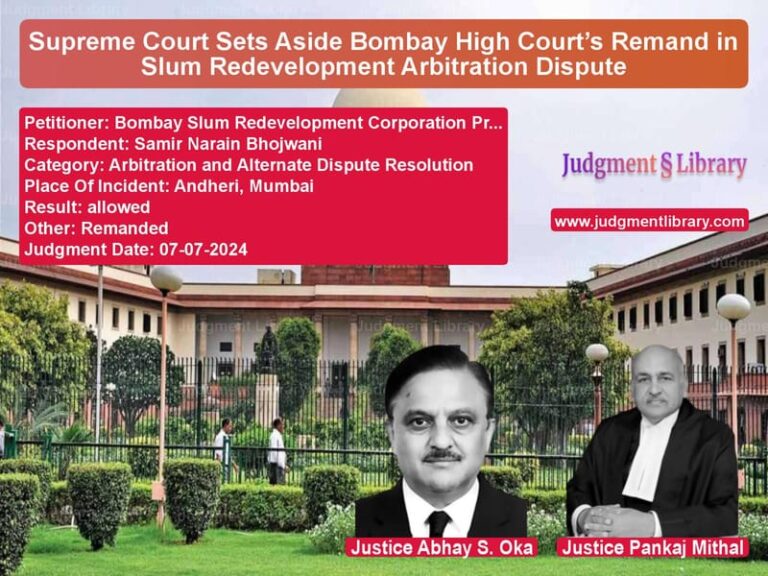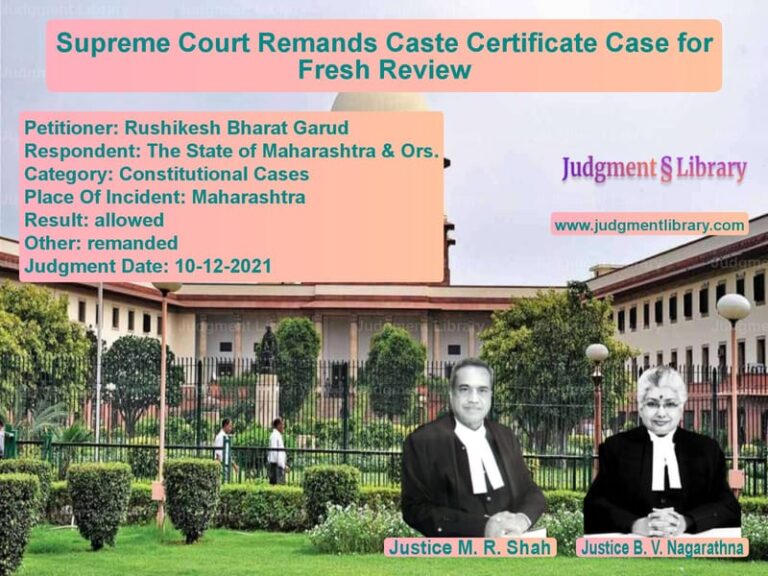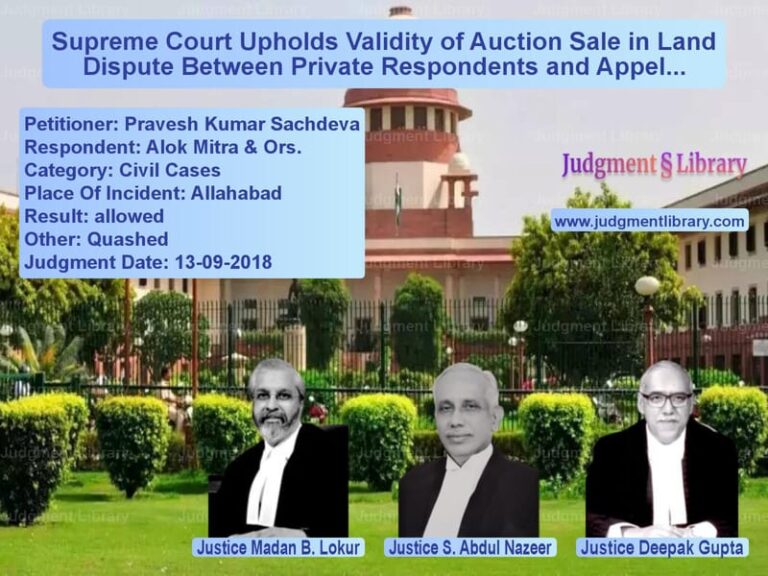Supreme Court Dissolves Marriage on Grounds of Irretrievable Breakdown: Key Takeaways
The Supreme Court of India recently delivered a significant judgment in the case of R. Annamalai versus Lalitha Subanam, dissolving their marriage on the grounds of irretrievable breakdown. This case highlights the complexities of marital disputes and the legal recourse available when reconciliation becomes impossible. Below is a detailed narrative of the case, the arguments presented, and the court’s reasoning.
The appellant, R. Annamalai, and the respondent, Lalitha Subanam, got married on February 14, 2000. Interestingly, the sister of the appellant was married to the brother of the respondent on the same day, creating a unique familial bond. However, their marital journey was far from smooth. By 2006, the respondent began living separately, and litigation ensued. The appellant filed petitions under Section 9 and later under Section 13 of the Hindu Marriage Act, 1955, though these were eventually withdrawn.
Parallel disputes arose between the appellant’s sister and the respondent’s brother, leading to further litigation. While the court noted that the latter couple had reconciled and were living together, the same could not be said for the appellant and respondent. Despite brief attempts at cohabitation, their separation became permanent.
In 2012, the appellant filed for divorce (H.M.O.P. No. 361/2012) before the Family Court in Madurai, which granted the decree on June 24, 2015. The respondent appealed this decision, and on April 1, 2019, the appellate court set aside the divorce decree. The matter then reached the Supreme Court.
During the proceedings, the court observed that the marriage had irretrievably broken down, with no emotional connection remaining between the parties. The judges stated, “It is apparent that the marriage between the appellant, R. Annamalai, and the respondent, Lalitha Subanam, has irretrievably broken down. They do not have any emotional connect with each other.”
Exercising its powers under Article 142 of the Constitution of India, the Supreme Court dissolved the marriage, emphasizing the futility of forcing the parties to remain legally bound. The appellant agreed to pay ₹25,00,000 to the respondent, to be deposited within eight weeks. Failure to comply would attract an annual interest of 7%, compounded yearly.
The court’s decision underscores the importance of recognizing irretrievable breakdown as a valid ground for divorce, even in the absence of mutual consent. This judgment serves as a precedent for similar cases where reconciliation is impossible, offering a path to closure for estranged couples.
Petitioner Name: R. Annamalai.Respondent Name: Lalitha Subanam.Judgment By: Justice SANJIV KHANNA, Justice SANJAY KUMAR.Place Of Incident: Madurai.Judgment Date: 16-04-2025.Result: allowed.
Don’t miss out on the full details! Download the complete judgment in PDF format below and gain valuable insights instantly!
Download Judgment: r.-annamalai-vs-lalitha-subanam-supreme-court-of-india-judgment-dated-16-04-2025.pdf
Directly Download Judgment: Directly download this Judgment
See all petitions in Alimony and Maintenance
See all petitions in Property Division in Divorce Cases
See all petitions in Mutual Consent Divorce
See all petitions in Domestic Violence
See all petitions in Child Custody
See all petitions in Judgment by Sanjiv Khanna
See all petitions in Judgment by Sanjay Kumar
See all petitions in allowed
See all petitions in supreme court of India judgments April 2025
See all petitions in 2025 judgments
See all posts in Divorce Cases Category
See all allowed petitions in Divorce Cases Category
See all Dismissed petitions in Divorce Cases Category
See all partially allowed petitions in Divorce Cases Category

